
My grandfather was a spectral man who showed up at our house on some nights, disappeared the next day, and reappeared a few months later, unannounced. There are days I remember waking up in the middle of the night to find him sleeping next to me. I learnt not to scream. This was him, my grandfather. He came with the wind and left with the wind. He had stories to tell, too. He once told me all those tales I soon forgot about the ancestors who had come before us, conveniently leaving out the part where he spitefully severed any obvious connection with them by picking a new family name because his brothers had momentarily infuriated him. A part of me thinks he just wanted to be different, edgy. By the end of his life, he had got his wish. He had become a recluse, a wanderer who rested at his sister’s home when his feet got weary. My family sometimes visited him at his sister’s, an unconventional arrangement in my culture. Whatever life dealt you as a man, staying at your married sister’s home in the care of your in-laws was always out of the question. But not for my grandfather. He stayed there out of necessity. He had burnt too many bridges and was stuck on the last untouched viaduct. He died at his sister’s and left us elaborate instructions on where to bury him – somewhere deep in the country in a cave. He said that is where the first of our kind lay waiting for him in the afterlife. This felt unnecessarily burdensome, but who dared argue with such an obstinate man even in death?
He did love my father, though. I, however, do not remember what they spoke about beyond each other’s health. In the beginning, it was my grandfather’s senescent body slowly giving up on him. That did not stop him from walking across villages and towns. He remained a wanderer. Towards the end, it was my father’s failing body after a stroke. My grandfather had strong opinions about the cause. The doctors didn’t say much and only left clouds of mystery which my grandfather happily cleared up with accusations and blame to most people but himself. Someone was trying to kill his son and it was not him.
My father and grandfather passed on a few years apart. I was too young to understand what that meant for me. I hid in books and in church, refusing to contemplate the terrible trouble I was in. I was their third-rate knockoff, mimicking what I could and failing at most. When they passed, I was left chasing shadows.
***
Manhood came to me as an inherited question. There was no manual bound together in story and hymn about those who came before me. Behind me was a peculiar kind of darkness from where the past’s hurts lurked and descended into momentary oblivion. It felt easy to judge the men before me for their failure to give me something I could hold, touch, feel, and inhabit, as all they passed on were these pains and hurts behind them. I was learning manhood from books and catching whiffs of it in conversations about the men who ran off, started families elsewhere, and came back sick and frail, to die in the hands of the very families they had abandoned. I was studying manhood in the bouncy, uneasy gaits of other young men who moved about in rings and troops. I looked on from the outside, envious and yet suspicious of their growing certainty. They were a little too sure, too certain. They told each other what men should and should not do. From where did they get their answers when all I had were questions? From fathers? Grandfathers?
But it was a quiet thing, though, fatherhood. It almost never told its own story. Fathers sat in couches only when they had to and quietly watched on with the disinterested gaze of deities regretting their own creation. Manhood was passed on from our fathers to us through abrasion and friction. It was in the times we made mistakes that fathers stood, unfastened the belts tying their trousers, hit, and hit, and hit. That was their language. For many of my peers, fathers were merely mothers’ threats. It was a thorny thing, this fatherhood. My father was equally barbed but not so quiet and aloof. I do remember him carrying me on his shoulders. I remember him listening and speaking to me. I just don’t hear what he said anymore. It all comes to me in whispers. We were completely different people, me, the soft-edged and more cerebral of us two, and him, the athletic and battle-hardened. He used to laugh at how soft my palms were; a reminder of how different our lives had been. I never had to hold on for dear life or carry heavy, gnarly burdens. He had done that work for me. What I think he whispers to me now is that the manhood demanded from me is different from that demanded from him. There seem to be no absolutes, only questions.
***
My father inherited questions, too, from my grandfather. Nothing was certain. Nothing was given to him. My father was born about a decade before independence. I once saw a greyscale picture of him standing outside a ramshackle hut, faintly smiling, caked in dust, and barely recognisable. I hear a few years before independence, Rhodesian soldiers surrounded that very hut, demanded to know where the ‘gandangas’ were – the terrorists. My grandmother pleaded and begged, screaming that she did not know. Her oldest son, my father’s brother, had left in the dead of night and never returned. He was a gandanga too but who could know where he was but the gods? The soldiers threw a flickering flame at the hut and the thatch lit the night sky. It was a lesson to everyone else never to harbour gandangas, have sympathy for gandangas, or build homes that raised gandangas. The man of the house, my grandfather, had left the family several years earlier, never to return. If there was a lesson in all this, it was that only white men in fatigues were men. Everyone else was what white men decided that they were. Soldiers could burn your home to ash, and you had to be grateful they did not burn you. My father, in Rhodesian eyes, a piccaninny gandanga, had to reclaim his manhood from this ash he sprouted from.
Back in the day, black men remained boys. My grandfather worked in the small town of Fort Victoria, modern-day Masvingo. He was a painter for the town council, and I hear they paid him enough to buy a small house in a black neighbourhood. No one has ever told me what happened to that house, but I know he did not keep it for long. He may have had a house, but in Fort Victoria, he was a visitor like every other African in any Rhodesian town. Back home, he had a family of twelve but white men still called him “boy”. Did he sell off his house and run off to a woman who worshipped him and made a man of the Rhodesian boy? I never got to ask. I would not have known how to ask such questions. We do not ask questions of brokenness here, for in them is an accusation of weakness. We look away when our elders falter. After he left Fort Victoria, my grandfather had another family that my father never got to meet. It is when he left that family that he went to live at his sister’s, the greatest abdication of his manhood in our culture. He would wander about and return to his sister’s where he later passed on. Maybe he was not wandering. Maybe he was running. He died with nothing much on him save for threadbare clothes and untold stories. His manhood was one of seeking. It was a manhood of questions. Did he die a boy?
My father walked where my grandfather ran. His manhood was less frantic, less agitated, no surer than my grandfather’s, but one could tell that he was not a man running from perpetual boyhood. He was walking from fire to something unburnt. Little did I know that the fire behind him now lived in his head. His body was razed from his insides, and I watched him slowly fade to his death, ten years after he had a stroke. The fire had been within.
Then there is me, the son of fire and descendant of flight. I inherited questions and journeys. I run still. I burn still. But my fires burn a little less, and boyhood recedes further into my past. My father doused the flames, and my grandfather fled the past. There are bodies between me and my past now. While I have not attained the conviction and certainty that other young men have, I have learnt to sit with the uncertainty and revel in its freedom. I evolve, become, change, question, undo, and redo manhood. My manhood is now mine, not the smoke of a colonial fire or a rejoinder to colonial insults.
I am free, praise my ancestors, I am free.
Photo by Teddy tavan from Pexels


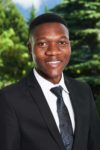
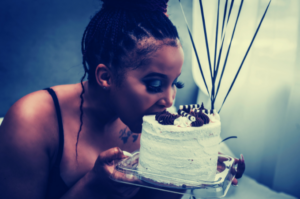
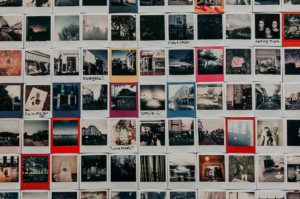
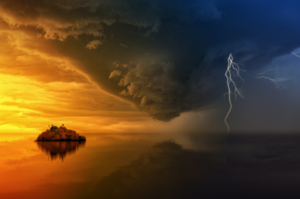
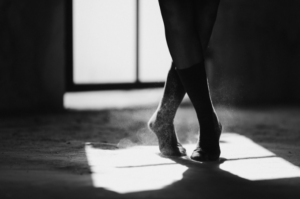
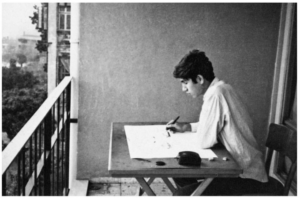
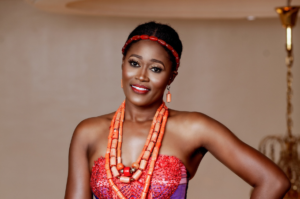

Wadzie Tads October 10, 2021 16:15
We do not ask questions of brokenness here, for in them is an accusation of weakness. - that hit hard So many questions and thoughts